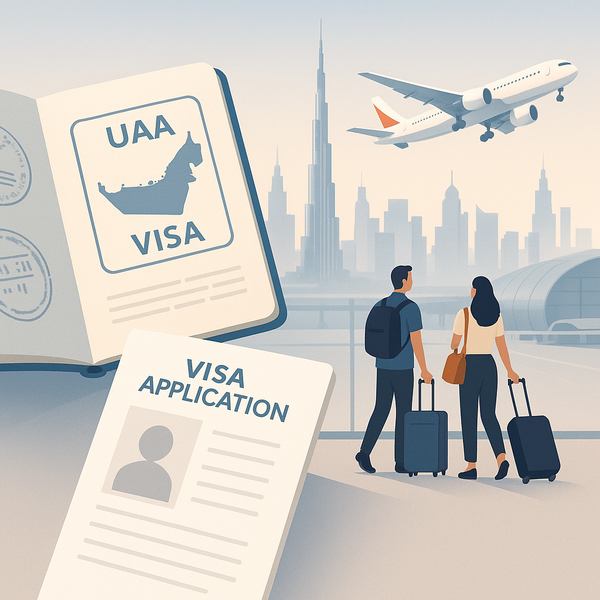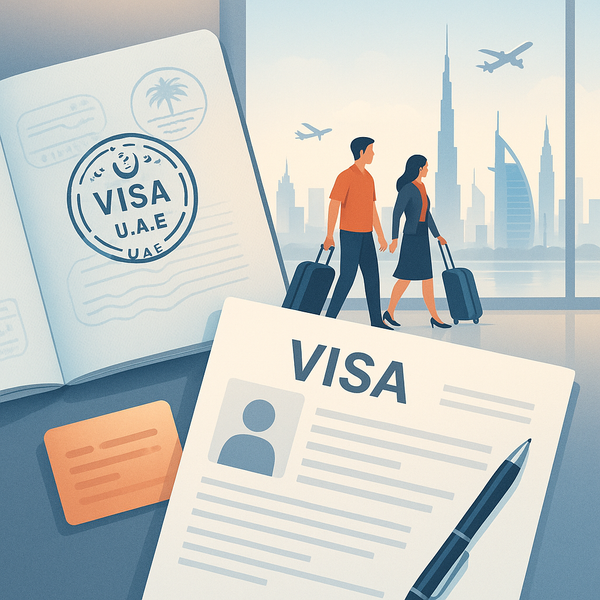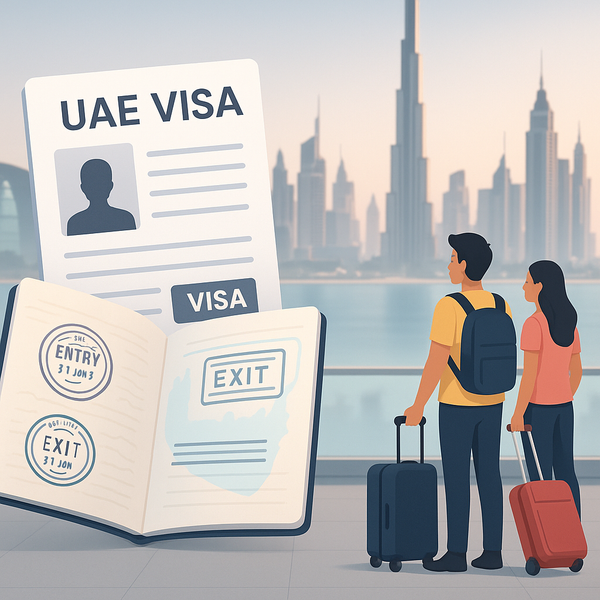Your Guide to UAE Residence Visa

Your Guide to UAE Residence Visa
Your Guide to UAE Residence Visa for UK Citizens
Imagine waking up to the warm glow of the Arabian sun, a cup of rich Emirati coffee in hand, as you prepare for another exciting day in the United Arab Emirates. For many UK citizens, this is not just a dream but a tangible reality made possible through the UAE residence visa. With the UAE's burgeoning economy and a lifestyle that promises both adventure and luxury, it's no wonder this Middle Eastern gem attracts expats from all over the world.
Understanding the UAE Residence Visa
The UAE residence visa is a legal document that allows foreign nationals to live in the UAE for an extended period. This visa is essential for those looking to work, study, or live with family in the UAE. For UK citizens, it opens doors to a thriving economy, tax-free income, and a multicultural lifestyle.
Types of Residence Visas
- Work Visa: Sponsored by a UAE-based employer, allowing you to live and work in the country.
- Family Visa: Allows residents to sponsor their family members, such as spouse and children.
- Student Visa: For those pursuing education in accredited UAE institutions.
- Golden Visa: Long-term visa for investors, entrepreneurs, and specialized talents.
Requirements and Documents Needed
To apply for a UAE residence visa, UK citizens need to prepare a set of documents and meet specific criteria:
- Valid UK passport with at least six months validity.
- Recent passport-sized photographs.
- Proof of medical examination from a UAE-approved health center.
- Financial documents, such as salary certificates or investment proofs (depending on visa type).
- Employment contract or sponsorship documents for work visas.
Application Process and Timelines
The process of obtaining a UAE residence visa involves several steps:
- Entry Permit: Issued before entering the UAE, allowing you to enter and start the visa process.
- Medical Examination: Conducted in the UAE to ensure medical fitness.
- Emirates ID Application: Essential identification card for residents.
- Visa Stamping: The final step involves stamping the residence visa on your passport.
Typically, the processing time ranges from two to four weeks, depending on the visa type and completeness of documentation. Fees vary, with work visas generally costing around AED 5000, while golden visas can exceed AED 150,000.
Comparing Visa Types
Choosing the right visa depends on your goals and circumstances:
- Tourist vs. Work Visa: A tourist visa is short-term, ideal for visits, while a work visa is necessary for employment.
- Golden Visa vs. Residence Visa: Golden visas offer longer stays and are geared towards investors and skilled professionals, whereas standard residence visas are tied to employment or family sponsorship.
Practical Tips for UK Citizens
To ensure a smooth application process, consider the following tips:
- Use official government portals or trusted resources like visahelper.ae for accurate information and services.
- Ensure all documents are complete and up-to-date to avoid delays.
- Start your application process well in advance of your planned move.
Case Scenarios
Let's take a look at two common scenarios:
John, an IT Specialist: John moves to Dubai for a job opportunity. His employer sponsors his work visa, and within three weeks, he receives his residence permit, allowing him to start his new role.
The Smith Family: Sarah, a UK citizen, sponsors her husband and children for a family visa. She ensures all documents are ready, and within a month, her family is reunited in Abu Dhabi.
Conclusion
Obtaining a UAE residence visa for UK citizens is a structured process that requires careful preparation and understanding of the requirements. Whether you're moving for work, family, or investment, the UAE offers a wealth of opportunities for expats.
To get started, gather your essential documents and consult reliable resources like visahelper.ae for guidance. Begin your application early to ensure a seamless transition to your new life in the UAE.



